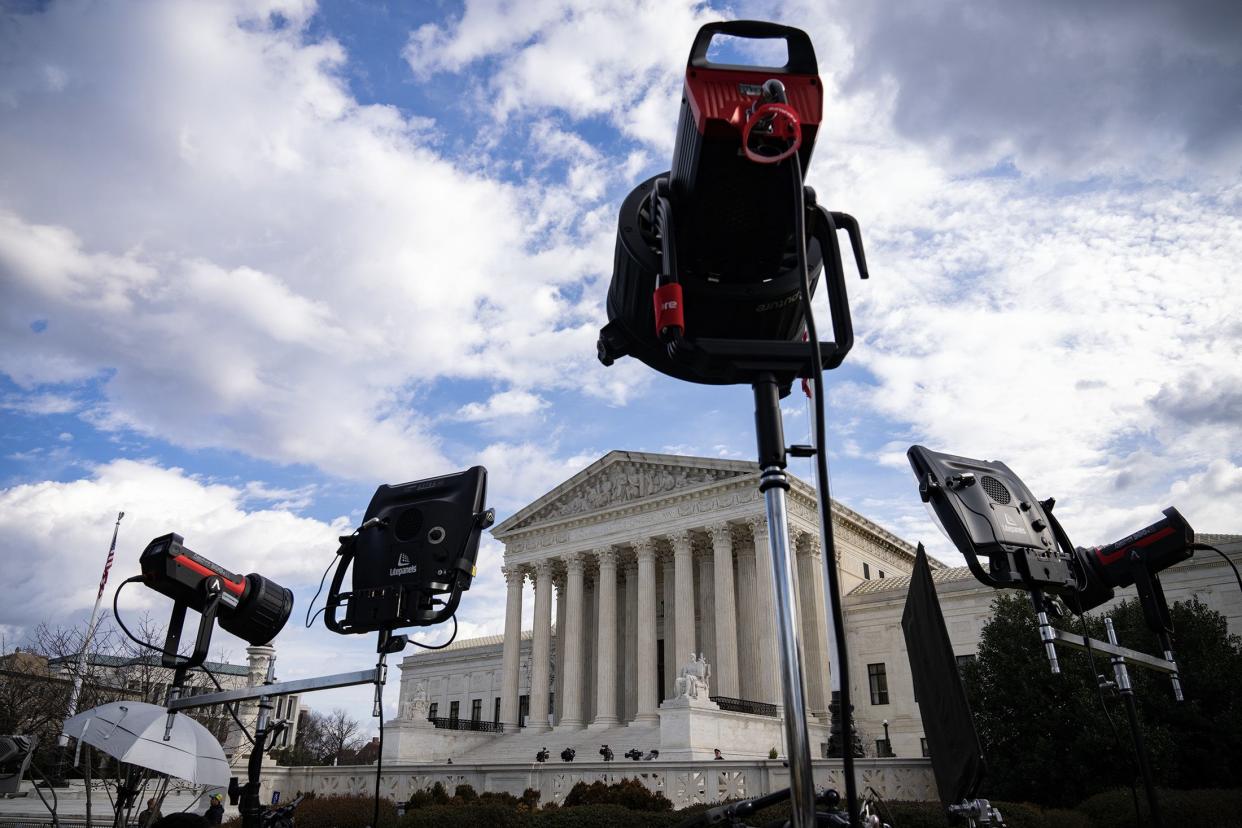Justices — From Alito to Jackson — Are ‘Confused’ by Internet Legal Shield Case

(Bloomberg) -- US Supreme Court justices across the political spectrum — from Samuel Alito to Ketanji Brown Jackson — uttered the words “I’m confused” during the early part of arguments over upending the internet’s foundational law.
Most Read from Bloomberg
McKinsey Plans to Eliminate About 2,000 Jobs in One of Its Biggest Rounds of Cuts
How Much Do Investors Say They Need to Retire? At Least $3 Million
China Urges State Firms to Drop Big Four Auditors on Data Risk
Russia’s War on Ukraine, China’s Rise Expose US Military Failings
World’s Largest Four-Day Work Week Trial Finds Few Are Going Back
The justices are “not the nine greatest experts on the internet,” said Justice Elena Kagan on Tuesday during oral arguments in Gonzalez v. Google, a case that centers on whether YouTube should be held liable for the videos that its algorithms recommend to users.
Kagan’s remarks, which were met with laughter, came as she expressed skepticism about the arguments from Eric Schnapper, the lawyer representing the family of a US citizen killed by Islamic State in a 2015 Paris attack, which contends Alphabet Inc.’s Google should be held liable for software algorithms that recommended terrorist videos to YouTube users.
The justices early in the day seemed at times confused and frustrated by Schnapper’s arguments, saying that they were unsure why YouTube in this case would not be protected by Section 230 of the Communications Decency Act, a 1996 statute that allows social media platforms to avoid most lawsuits over the content posted on their platforms. The arguments offered a very early glimpse into where the justices might land, although the court often changes its skeptical tone throughout oral arguments.
The Gonzalez family has argued that YouTube should face lawsuits over whether it aided and abetted terrorism by proactively recommending Islamic State videos.
“I’m afraid I’m completely confused by whatever argument you’re making at the present time,” said Alito.
“I guess I’m thoroughly confused,” Jackson said at another point.
Most of the justices at some point said they did not understand Schnapper’s arguments, contending that the conduct at issue — YouTube recommending videos — is likely protected by Section 230.
Even Justice Clarence Thomas, who has stated previously that he believes it’s time to revisit Section 230, questioned whether it made sense to hold YouTube accountable for its algorithms even though the company applied them “neutrally” to all kinds of videos, ranging from Islamic State videos to videos about cooking.
Schnapper argued that Section 230 does not protect YouTube’s promotion of thumbnails, or clickable videos that feature snapshots from a video that YouTube is recommending.
“Algorithms are endemic to the internet,” said Kagan. “Does your position send us down the road such as 230 really can’t mean anything at all?”
Most Read from Bloomberg Businessweek
With Human Metalworkers Hard to Come By, Robotic Blacksmiths Step Up
The Staged Bomb Scare That Backfired on Mumbai’s Notorious Cops
©2023 Bloomberg L.P.



